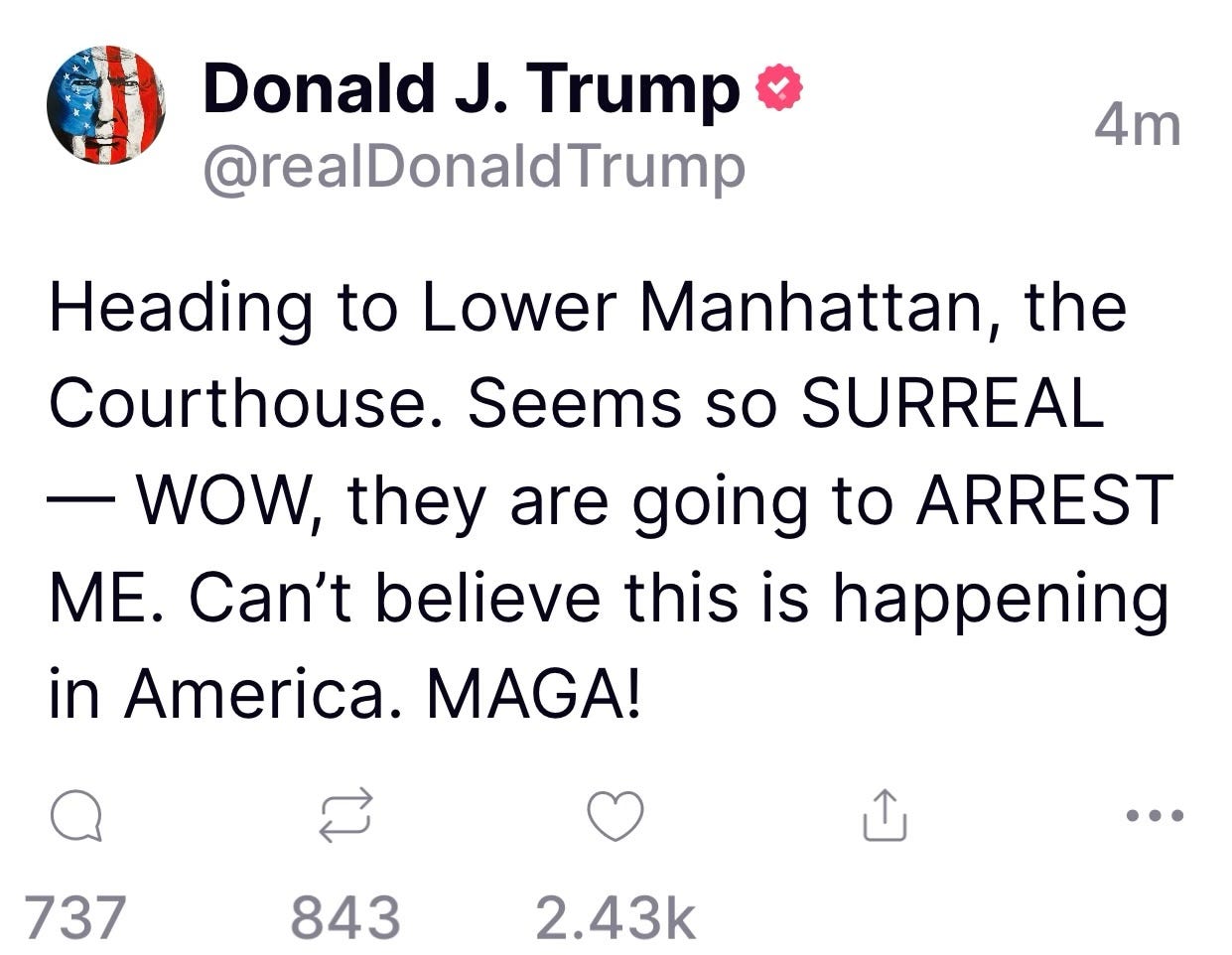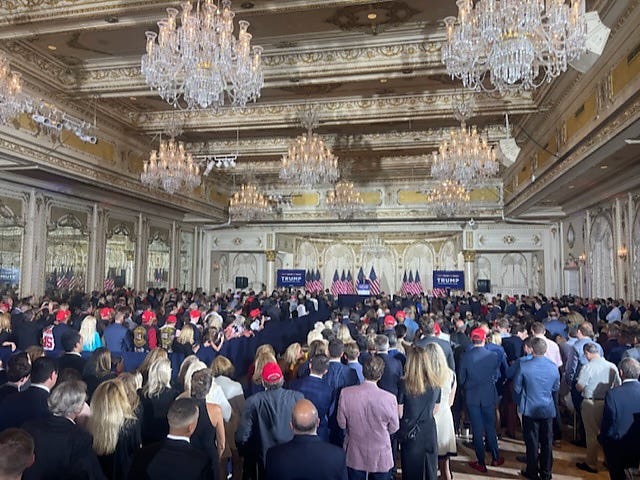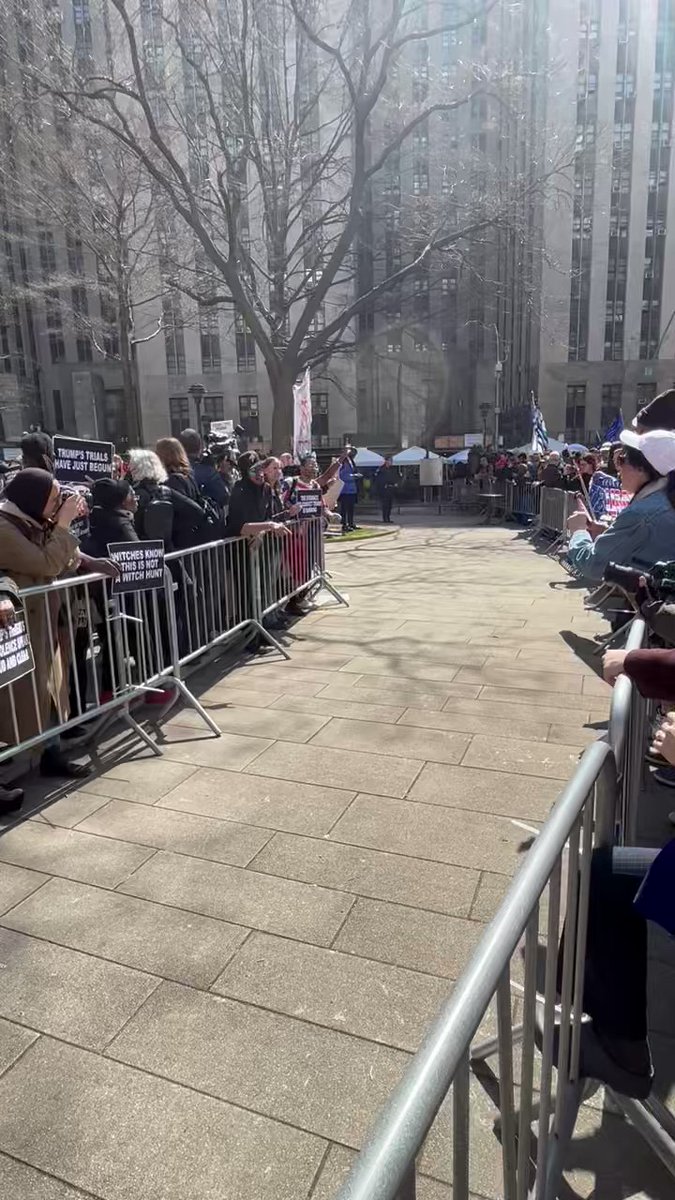First, why isn’t there a conspiracy charge? No answers to that today. The statement of facts uses conspiracy language and seems to suggest there was a conspiracy between Pecker, Cohen, and Trump. There are strategic reasons prosecutors like to use conspiracy charges, including the fact that they permit evidence to be introduced that can be difficult to get in otherwise—for instance, conversations among co-conspirators. But the Manhattan DA has had months to consider his case, and, presumably, he had good reasons for the charging decisions he made.
Second, why isn’t there more specificity about the crimes the DA is alleging to upgrade the misdemeanors to felony charges? Our expectation, as we’ve discussed the possible shape this indictment might take, was that we’d see tax crimes and election crimes. And we do. But we still don’t know much more than that. The DA explained in his press conference that he is including both federal election crimes involving caps on contributions and state provisions that prohibit illegally affecting an election, as well as state tax crimes. It would have been nice to have a little bit more speaking in the indictment, so we could have a better understanding of the theories Bragg is going to advance on this key point. There’s enough to let us know that he has multiple paths to converting his misdemeanors into felonies, but the appellate lawyer in me wants all of the specifics. And there are legal challenges looming here—there will be questions about whether a state election law applies to a federal election and others about whether a state prosecutor can apply a federal law here. That may make the tax charges the goldilocks provision in the mix.
To be fair, it’s apparently the practice in New York to indict a case like this without referencing the specific criminal violations that enhance the false records charges. And it would be a mistake to treat this case differently from other cases. If prosecutors had, Trump’s lawyers would likely be complaining about the additional information in the indictment. Now, they’re likely to file a motion asking for more specificity. We’ll learn the answers as the case progresses, but it would have been nice to have it all laid out for starters.
One final note: In a jury trial, these charges aren’t all or nothing. The jury could return felony convictions if they think the prosecution has proved its case. But if they believe the records were falsified, but that the evidence doesn’t establish that another crime was involved, they could return guilty verdicts on the misdemeanor charges—what’s called a lesser included offense. I don’t think that’s going to be the case, but it’s important to know there could be felony convictions, misdemeanor convictions, or acquittals, and the jury votes separately on each charge. There are multiple paths to conviction.
A few weeks ago, I wrote to you that “Some people have suggested that the charges under consideration in Manhattan are insignificant. . . . I don’t see it that way. The Stormy Daniels incident is the origin story for Trump’s efforts to manipulate elections in unfair ways.” The indictment confirms that’s true. The chandeliers may have been sparkly at Mar-a-Lago tonight for Trump’s recitation of grievance, but his lawyers, if not he, understand they have a difficult, albeit lengthy, path ahead that is very likely to result in a number of convictions.
The next hearing in this case isn’t scheduled until December 4. That’s a long ways off. In the meantime, the prosecution and the defense will file pretrial motions and conduct discovery. Trump is presumed innocent until proven guilty and he has a right to remain silent (if he can). But this won’t be the only storm he has to weather for long. The E. Jean Carroll trial starts on April 25, in a federal courtroom, also in New York. And there is the prospect of additional criminal indictments.
Now we know what charges Trump faces in Manhattan

joycevance.substack.com

www.businessinsider.com




